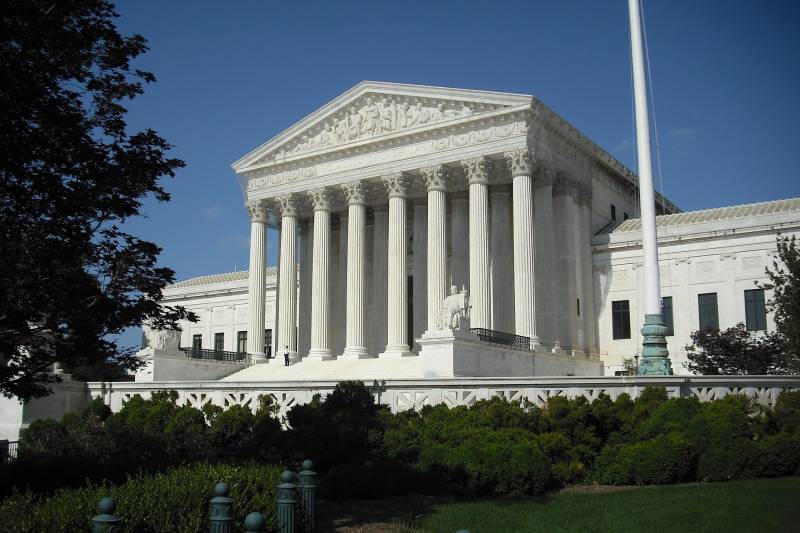- Lemberg Law
- Duguid v. Facebook – Frequently Asked Questions
Lemberg Law is on the front lines of a monumental case involving the Telephone Consumer Protection Act and what constitutes Automatic Telephone Dialing Systems.
Oral Arguments
On December 8, 2020, Lemberg Law represented plaintiff Noah Duguid in the Supreme Court of the United States against Facebook in Duguid V. Facebook, a case that originated as a Lemberg Law class action lawsuit. Arguing on Mr. Duguid’s behalf via teleconference was renowned scholar Bryan Garner, the editor of Black’s Law Dictionary and a noted lexicographer, who also made his SCOTUS debut.
What is the Telephone Consumer Protection Act (TCPA)?
This hearing directly pertains to the TCPA, a 1991 federal law that restricts telemarketing calls and the use of automatic telephone dialing systems (ATDS) for common carriers and other marketers.
For example, the TCPA requires telemarketers to maintain company-specific do-not-call lists. The law also mandates telemarketers obtain prior express written consent from consumers before robocalling them. In 2003, the FCC revised its TCPA rules to establish with the Federal Trade Commission (FTC) a national Do-Not-Call registry, which prevents unwanted telemarketing calls for consumers who register their number(s) in the database.
What is the issue?
The issue concerns whether the definition of ATDS encompasses any device “which has the capacity—(A) to store or produce telephone numbers to be called, using a random or sequential number generator; and (B) to dial such numbers,” as outlined under the TCPA. The TCPA bans using any automatic telephone dialing system or an artificial or prerecorded voice to call or text cellphones without consent.
Appellate courts have come to different conclusions about the TCPA’s definition of an ATDS. Some have said that “using a random or sequential number generator,” applies to both preceding verbs: “to store or produce.” Others have found that the trailing modifier applies only to “produce.”
Duguid V. Facebook marks the second time this year that SCOTUS has been asked to weigh in about robocalls. In July, the U.S. Supreme Court ruled that the government debt exception to the TCPA violated the First Amendment, and dismantled the exception.
How did Duguid v. Facebook reach the U.S. Supreme Court?
In the initial complaint, Duguid alleged that he received repeated texts from Facebook in 2014 telling him to log onto Facebook to report problematic content—but he did not have an account. Duguid attempted to directly stop the text messages by replying “off” and “all off.” Each time, he received an automatic text response: “Facebook texts are now off. Reply to turn them back on.” Yet, Facebook continued to send text messages.
It is a violation under the TCPA for a telemarketer to use an ATDS to call consumers without their consent. The class action lawsuit (No. 15-cv-00985 JST, N.D. Cal.) sought justice for Duguid and other consumers who endured similar unwarranted texts. The U.S. District Court granted Facebook’s motion to dismiss the case, stating that Duguid did not adequately allege that Facebook’s notifications were sent using an ATDS.
Lemberg Law appealed the district court’s decision to the U.S. Court of Appeals for the Ninth Circuit (No.17-15320). The appellate court ruled that Duguid plausibly argued that Facebook used an ATDS and ruled against a rehearing before the entire court.
In October 2019, Facebook appealed the case to the U.S. Supreme Court. In July 2020, the court agreed to rule on whether the Telephone Consumer Protection Act’s ban on robocalling using an “automatic telephone dialing system” includes using a device that can store and automatically dial telephone numbers without using a “random or sequential number generator.”
What Happened During Oral Arguments?
To simplify last Tuesday’s oral arguments, the plaintiff—Facebook counsel Paul Clement and Jonathan Ellis of the Justice Department—argued that the “using a random or sequential number generator” applies to both the verbs “store” and “produce,” so the defendants are not liable for placing automated calls to stored numbers unless those stored numbers were produced by a random number generator.
While the defendant, Mr. Duguid represented by Garner, argued the contrary: the “random number generator” phrase applies only to the verb “produce,” so defendants are in fact liable for using an automated system to call stored numbers without receiving prior consent.
What type of Impact on Consumers will the Decision Have?
If Lemberg Law prevails, consumers can count on stronger TCPA protections that give them the opportunity to hold robocallers accountable. Either way, the Court’s decision will provide consumers, consumer attorneys, and robocalling companies with a bright line between legal and illegal robocalls.
When will SCOTUS issue a ruling?
The Supreme Court’s ruling is expected to be issued by June 2021.
